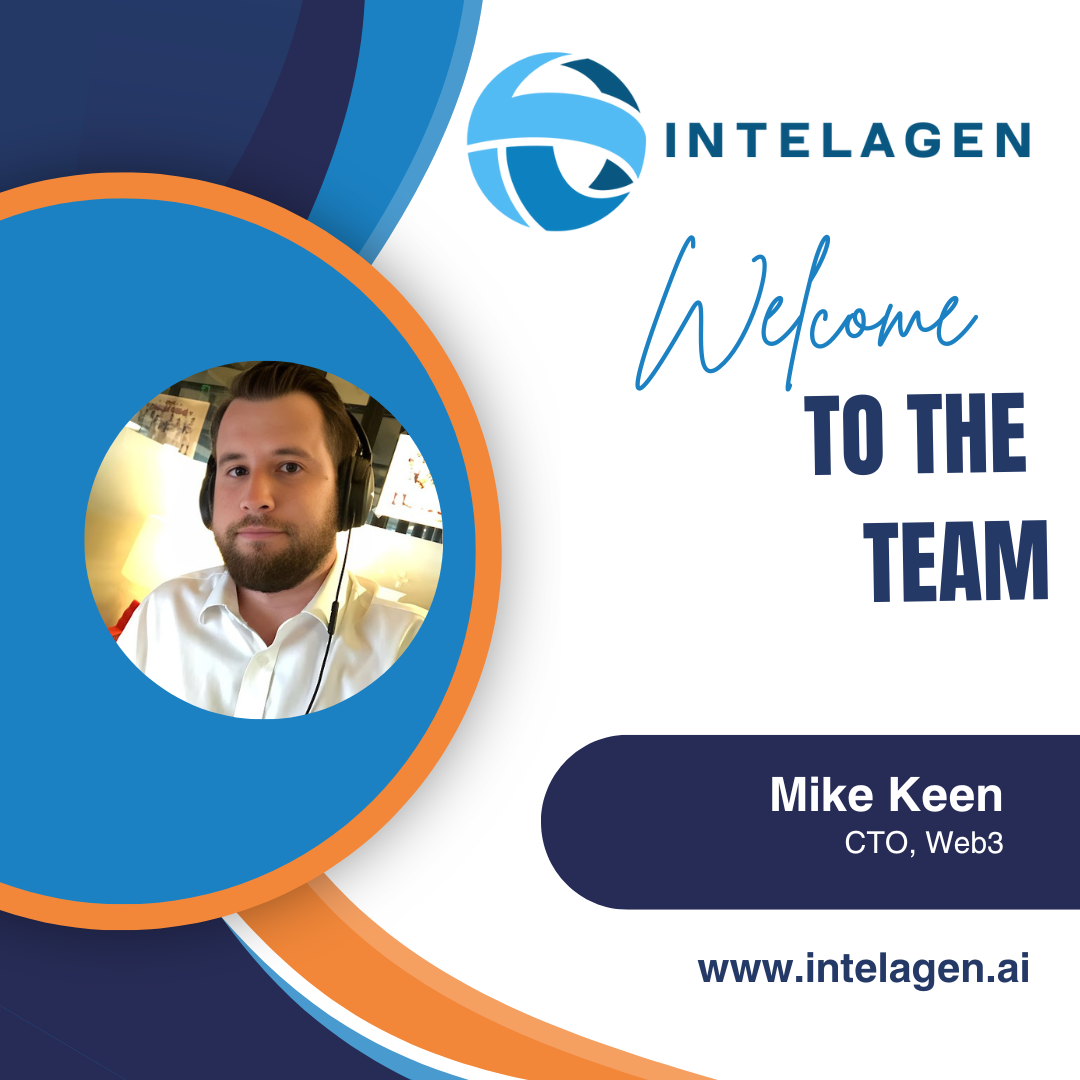Data & Analytics Services
Data & Analytics Services
Data
Management

Data
Analytics

Data Warehouse Modernization

Database Modernization

Data Management
Decisions are powered by data. Cloudbench’s data management experts can assist you in deciding whether to maintain your relational database due to service necessity or if NoSQL databases or data warehousing solutions would be a better fit. Our goal is to enable you to fully leverage your data assets in accordance with your business needs.
Business Challenges Addressed with Data Management
Protecting sensitive business and customer data from unauthorized access, breaches, and compliance violations is a major challenge. Proper data management practices include encryption, access controls, and regular security audits to mitigate these risks.
Inaccurate, inconsistent, or incomplete data can lead to flawed decision-making and operational inefficiencies. Data management involves establishing quality standards, data cleansing, and validation processes to ensure data accuracy and consistency.
Businesses often operate with disparate data sources and systems, leading to siloed data and fragmented insights. Effective data management includes integrating and harmonizing data from various sources to create a unified view of information across the organization.
Meeting regulatory requirements and ensuring compliance with data protection laws is essential for businesses, particularly in highly regulated industries. Data management frameworks encompass data governance policies, data lifecycle management, and compliance monitoring to uphold legal and regulatory obligations.
Managing large volumes of data and ensuring scalability to accommodate future growth is a common challenge for businesses. Data management strategies include selecting appropriate storage solutions, optimizing data storage architectures, and implementing data tiering and archival policies.
Providing timely access to relevant data for decision-making and analysis is crucial for business agility. Data management involves designing data architectures, implementing data indexing and search capabilities, and optimizing data retrieval processes to facilitate quick and efficient access to information.
Extracting actionable insights from data to drive business strategy and decision-making is a key challenge. Effective data management encompasses data analytics capabilities, including data mining, predictive analytics, and business intelligence tools, to uncover valuable insights from large datasets.
Establishing clear roles, responsibilities, and processes for managing and governing data is essential for ensuring data integrity and accountability. Data management frameworks include data governance structures, data stewardship programs, and data ownership policies to govern data usage and access.
Transitioning from legacy systems to modern data platforms or migrating data between systems can be complex and risky. Effective data management involves planning and executing data migration strategies, data mapping, and validation to ensure a smooth transition with minimal disruption.
Determining appropriate data retention policies and managing data lifecycle from creation to disposal is critical for optimizing storage resources and complying with legal requirements. Data management includes defining retention policies, data archival strategies, and data disposal procedures to manage data effectively throughout its lifecycle.
Our Solutions for
Data Management
Cloudbench assists businesses in developing comprehensive data strategies aligned with their organizational goals. This involves assessing current data infrastructure, identifying opportunities for improvement, and defining a roadmap for data management initiatives.
Cloudbench assists businesses in establishing data governance frameworks to ensure data quality, security, and compliance across data pipelines. This includes defining governance policies, roles, and responsibilities, and implementing processes for data stewardship and oversight.
Our Foundry’s services include designing data architectures optimized for performance, scalability, and flexibility. This involves defining data models, selecting appropriate storage solutions, and designing data pipelines for efficient data integration and processing.
Cloudbench assists businesses in implementing master data management solutions to ensure consistency and accuracy of critical data across the organization. This includes defining master data domains, establishing data governance policies, and implementing MDM tools and processes.
Cloudbench offers data quality assurance services to assess and improve the quality of data assets. This includes data profiling, cleansing, and enrichment to ensure data accuracy, completeness, and consistency.
Cloudbench helps businesses integrate data from disparate sources and transform it into actionable insights. This includes designing and implementing ETL (Extract, Transform, Load) processes, data migration, and data synchronization to ensure seamless data integration across systems.
Our Foundry’s services include assessing data security risks and implementing measures to protect sensitive data from unauthorized access, breaches, and compliance violations. This includes data encryption, access controls, and compliance with regulatory requirements such as GDPR and CCPA.
Our Foundry assists businesses in managing the entire lifecycle of data from creation to disposal. This includes defining data retention policies, data archival strategies, and data disposal procedures to optimize storage resources and comply with regulatory requirements.
Cloudbench’s services include training programs and workshops to educate business stakeholders and IT teams on data governance principles, best practices, and implementation strategies. This ensures that organizations have the necessary skills and expertise to effectively manage their data assets.
Cloudbench can conduct performance assessments and benchmarking exercises to evaluate the effectiveness of Generative AI solutions. This includes comparing performance against industry standards, identifying areas for improvement, and providing actionable insights.
Cloudbench helps businesses monitor and optimize data pipelines for performance, reliability, and cost-effectiveness. This involves implementing monitoring tools and processes to track pipeline performance, identify bottlenecks, and optimize resource utilization.
Our Foundry’s services include implementing cloud-based data management solutions, leveraging cloud platforms for data storage, processing, and analytics. This involves designing cloud data architectures, implementing data pipelines, and optimizing cloud resources for scalability and cost-efficiency.
Data Analytics
In the ever-evolving landscape of industries, data transcends its numeric form to become the fundamental driving force behind organizational operations.
Within these data repositories lie insights that can revolutionize businesses, shape customer experiences, and drive innovation. From data collection and storage to processing and visualization, your ability to analyze and act on data-driven insights is crucial in today’s competitive marketplace. Leveraging Google Cloud solutions, our Data Analytics services decode vast information resources to deliver actionable insights driving growth, ensuring each data piece contributes to a compelling narrative that informs strategic decisions with accuracy and coherence.
Data Analytics
Business Challenges Addressed with Data Analytics
Data analytics helps businesses make informed decisions by providing insights derived from data analysis.
Analyzing customer data enables businesses to understand customer preferences, behavior patterns, and trends, leading to targeted marketing strategies and improved customer satisfaction.
Data analytics can identify inefficiencies in business operations, optimize processes, and reduce costs.
By analyzing historical data and identifying patterns, data analytics helps businesses assess and mitigate risks, such as financial risks, fraud, and cybersecurity threats.
Data analytics enables businesses to forecast future trends, demand, and market conditions, facilitating strategic planning and resource allocation.
Analyzing market trends and customer feedback allows businesses to develop new products and services tailored to customer needs and preferences.
Data analytics provides real-time insights into business performance, allowing businesses to track key performance indicators (KPIs), monitor progress towards goals, and identify areas for improvement.
By leveraging data analytics, businesses can gain insights into competitors’ strategies, market positioning, and customer behavior, allowing them to stay ahead of the competition.
Data analytics helps businesses ensure compliance with regulatory requirements by monitoring and analyzing data related to legal and regulatory standards, such as GDPR, HIPAA, and SOX.
Analyzing supply chain data enables businesses to optimize inventory management, reduce logistics costs, and improve overall supply chain efficiency.
Data analytics enables businesses to personalize marketing campaigns, product recommendations, and customer interactions based on individual preferences and behavior.
By analyzing employee data, businesses can identify talent gaps, optimize workforce planning, and improve employee engagement and retention.
Our Solutions for
Data Analytics
Cloudbench assists businesses in developing data analytics strategies aligned with their goals and objectives. This involves assessing current capabilities, identifying use cases, defining success criteria, and creating a roadmap for implementation.
Cloudbench helps businesses design data architectures optimized for performance, scalability, and flexibility. This includes defining data models, selecting appropriate storage solutions, and designing data pipelines for efficient data processing and analysis.
Our Foundry’s services include designing and implementing data integration solutions to consolidate and harmonize data from disparate sources. This involves developing Extract, Transform, Load (ETL) processes, data mapping, and data quality assurance to ensure accurate and reliable data integration.
Our Foundry offers expertise in advanced analytics and machine learning techniques to derive insights from data and build predictive models. This includes data mining, statistical analysis, predictive modeling, and algorithm development to uncover actionable insights and drive business value.
Cloudbench helps businesses visualize and communicate insights from data through interactive dashboards, reports, and data visualization tools. This includes designing intuitive user interfaces, creating informative data visualizations, and enabling self-service analytics for end-users.
Cloudbench assists businesses in establishing data governance frameworks to ensure data quality, security, and compliance. This includes defining data governance policies, roles, and responsibilities, implementing data quality controls, and ensuring compliance with regulatory requirements.
Our Foundry’s consulting services include implementing big data and cloud analytics solutions to handle large volumes of data and leverage cloud computing resources for analytics workloads. This involves selecting and configuring cloud-based analytics platforms, optimizing data storage and processing, and ensuring scalability and performance.
Cloudbench offers training programs and workshops to educate business stakeholders and IT teams on data analytics concepts, tools, and techniques. This ensures that organizations have the necessary skills and expertise to effectively leverage data analytics for decision-making and innovation.
Cloudbench helps businesses monitor the performance of their data analytics solutions and optimize them for better results. This includes analyzing key performance indicators (KPIs), identifying bottlenecks, and making continuous improvements to enhance efficiency and effectiveness.
Cloudbench’s consulting services include change management strategies and adoption plans to facilitate the successful rollout and adoption of data analytics initiatives within the organization. This involves engaging stakeholders, communicating benefits, addressing concerns, and driving cultural change to ensure widespread adoption and buy-in.
Data Warehouse Modernization
Collaborating with our seasoned Foundry data architects and engineers, we evaluate your existing data ecosystem. Through this partnership, we pinpoint areas ripe for enhancement, crafting a robust strategy and roadmap for modernizing your data warehouse. Our experts then seamlessly lead the migration process, ensuring a smooth transition.
Business Challenges Addressed with Data Warehouse Modernization
Traditional data warehouses may struggle to handle increasing volumes of data generated by businesses, leading to scalability issues. Modernizing data warehouses allows businesses to scale their infrastructure to accommodate growing data needs efficiently.
Legacy data warehouses may experience performance bottlenecks when processing large and complex datasets, resulting in slow query response times and decreased productivity. Data warehouse modernization improves performance by leveraging advanced technologies and optimizing data processing pipelines.
Traditional data warehouses often require extensive manual effort for data integration, resulting in delays and errors in data processing. Modernizing data warehouses streamlines data integration processes, enabling businesses to ingest and process data from diverse sources more efficiently.
Legacy data warehouses can be expensive to maintain and operate due to high licensing fees, hardware costs, and ongoing maintenance expenses. Data warehouse modernization helps businesses reduce costs by leveraging cloud-based solutions, which offer flexible pricing models and scalability.
Inconsistent data quality across different data sources can lead to inaccurate insights and decision-making. Modernizing data warehouses includes implementing data quality controls and governance processes to ensure data consistency and accuracy.
Traditional data warehouses may not support real-time analytics capabilities, limiting businesses’ ability to derive timely insights from data. Data warehouse modernization enables businesses to implement real-time data processing and analytics solutions, allowing for faster decision-making and improved agility.
Legacy data warehouses may lack robust data governance and compliance features, exposing businesses to risks related to data privacy, security, and regulatory compliance. Modernizing data warehouses includes implementing robust data governance frameworks and compliance controls to ensure data security and regulatory compliance.
Legacy data warehouses may restrict data accessibility to a limited number of users or departments, hindering collaboration and decision-making across the organization. Data warehouse modernization includes implementing self-service analytics capabilities, enabling users to access and analyze data independently without IT intervention.
Legacy data warehouses may become obsolete over time, as newer technologies emerge and business requirements evolve. Data warehouse modernization involves adopting modern technologies and best practices to future-proof data infrastructure and support evolving business needs.
Businesses that fail to modernize their data warehouses may lag behind competitors who leverage advanced analytics and insights to gain a competitive edge. Data warehouse modernization enables businesses to unlock the full potential of their data assets, driving innovation, and maintaining a competitive advantage in the marketplace.
Our Solutions for
Data Warehouse Modernization
Cloudbench can conduct assessments of existing data warehouse environments, identifying gaps and opportunities for modernization. We then develop comprehensive modernization strategies aligned with business objectives, considering factors such as scalability, performance, and cost-effectiveness.
Cloudbench assists businesses in migrating their data warehouses to cloud-based platforms such as Google BigQuery. This involves planning and executing the migration process, including data migration, schema conversion, and application re-platforming.
Our Foundry’s consulting services include designing and optimizing data warehouse architectures to leverage modern technologies and best practices. This may involve implementing distributed architectures, columnar storage, and in-memory processing for improved performance and scalability.
Our Foundry helps businesses modernize data integration and ETL processes to streamline data ingestion and processing. This includes redesigning ETL pipelines, implementing real-time data integration solutions, and automating data transformation workflows.
Our Foundry assists businesses in redesigning data models and schemas to optimize data storage and querying performance. This involves denormalizing data structures, partitioning tables, and optimizing indexes for faster data access.
Our Foundry services include designing and developing Conversational AI solutions such as chatbots, virtual assistants, and voice interfaces. This includes defining conversation flows, creating natural language understanding (NLU) models, and designing user interfaces for optimal user experience.
Our Foundry optimizes data warehouse performance by tuning database configurations, optimizing SQL queries, and implementing caching mechanisms. This helps improve query response times and overall system efficiency.
Our Foundry’s consulting services include implementing robust data governance and security controls to ensure data integrity, privacy, and compliance. This involves defining data governance policies, access controls, and encryption mechanisms to protect sensitive data.
Our Foundry assists businesses in implementing metadata management solutions to track data lineage, dependencies, and usage across the data warehouse environment. This helps ensure data quality, traceability, and compliance with regulatory requirements.
Cloudbench provides change management and training services to help businesses adapt to the modernized data warehouse environment. This includes training end-users on new tools and technologies, and facilitating organizational change to support the adoption of modern data warehouse practices.
Cloudbench helps businesses establish processes for continuous improvement and innovation in data warehouse modernization efforts. This involves monitoring performance metrics, gathering feedback, and implementing iterative improvements to optimize data warehouse operations over time.
Database Modernization
Collaborating closely with your team, our Foundry leverages their data expertise to enhance performance and streamline costs. We conduct thorough assessments of your existing database infrastructure, pinpointing areas ripe for improvement, and craft a comprehensive modernization strategy for a smooth migration process.
Business Challenges Addressed with Database Modernization
Legacy databases may struggle to scale efficiently to accommodate growing data volumes and user demands. Database modernization enables businesses to adopt scalable architectures that can handle increased data loads and user concurrency.
Outdated database systems may experience performance bottlenecks, leading to slow query processing and degraded system responsiveness. Modernizing databases involves optimizing performance through techniques such as query optimization, indexing, and caching.
Legacy databases can be costly to maintain and operate due to high licensing fees, hardware requirements, and ongoing maintenance expenses. Database modernization can help businesses reduce costs by migrating to cloud-based or open-source database solutions with flexible pricing models.
Traditional databases may lack support for seamless data integration with other systems and applications, leading to data silos and inefficiencies. Modernizing databases involves implementing integration solutions that enable seamless data exchange and interoperability across the organization.
Legacy databases may lack robust security features and compliance controls, putting sensitive data at risk of breaches and non-compliance with regulatory requirements. Database modernization includes implementing security best practices and compliance measures to protect data integrity and confidentiality.
Outdated database systems may require manual maintenance tasks and lack automation capabilities, leading to increased operational overhead and reduced efficiency. Modernizing databases involves automating routine tasks, implementing monitoring and alerting systems, and adopting DevOps practices for streamlined operations.
Legacy databases may lack centralized data governance controls, making it difficult to enforce data quality standards and ensure data consistency across the organization. Database modernization includes implementing data governance frameworks and controls to enforce data quality, integrity, and compliance.
Traditional databases may lack robust backup and disaster recovery capabilities, putting critical data at risk of loss in the event of hardware failures or natural disasters. Database modernization involves implementing backup and disaster recovery solutions to ensure business continuity and data resilience.
Legacy databases may hinder innovation and business agility by limiting the adoption of new technologies and delaying the delivery of new features and functionalities. Database modernization enables businesses to adopt modern technologies such as NoSQL databases, distributed architectures, and containerization for greater innovation and agility.
Organizations using proprietary database systems may face vendor lock-in, limiting their flexibility and increasing dependency on specific vendors. Database modernization involves migrating to open-source or cloud-based database solutions, reducing vendor lock-in and increasing flexibility and choice.
Our Solutions for
Database Modernization
Cloudbench conducts thorough assessments of existing database environments, identifying inefficiencies and opportunities for modernization. They then develop tailored modernization strategies aligned with business goals, considering scalability, performance, and cost-effectiveness.
Cloudbench assists businesses in migrating their databases to cloud-based platforms like Google Cloud. This involves planning and executing the migration process, including data migration, schema conversion, and application re-platforming.
Our Foundry’s services include designing and optimizing database architectures to leverage modern technologies and best practices. This may involve implementing distributed architectures, sharding, or microservices architecture for improved scalability and performance.
Cloudbench helps businesses modernize data integration and ETL (Extract, Transform, Load) processes to streamline data movement and processing. This includes redesigning ETL pipelines, implementing real-time data integration solutions, and automating data transformation workflows.
Our Foundry optimizes database performance by tuning database configurations, optimizing SQL queries, and implementing caching mechanisms. This helps improve query response times and overall system efficiency.
Our Foundry’s consulting services include implementing robust data governance and security controls to ensure data integrity, privacy, and compliance. This involves defining data governance policies, access controls, and encryption mechanisms to protect sensitive data.
Cloudbench helps businesses implement backup and disaster recovery solutions to ensure data availability and resilience. This includes designing backup strategies, implementing failover mechanisms, and testing disaster recovery procedures to minimize downtime and data loss.
Cloudbench provides training programs and workshops to educate IT teams and stakeholders on modern database technologies and best practices. This ensures that organizations have the necessary skills and knowledge to support and maintain modernized database environments effectively.
Our Foundry facilitates change management processes to ensure smooth adoption of modernized database solutions within the organization. This involves engaging stakeholders, communicating benefits, and addressing concerns to foster buy-in and support for the modernization initiative.
Our Foundry helps businesses establish processes for continuous improvement and innovation in database modernization efforts. This involves monitoring performance metrics, gathering feedback, and implementing iterative improvements to optimize database operations and support evolving business needs.


